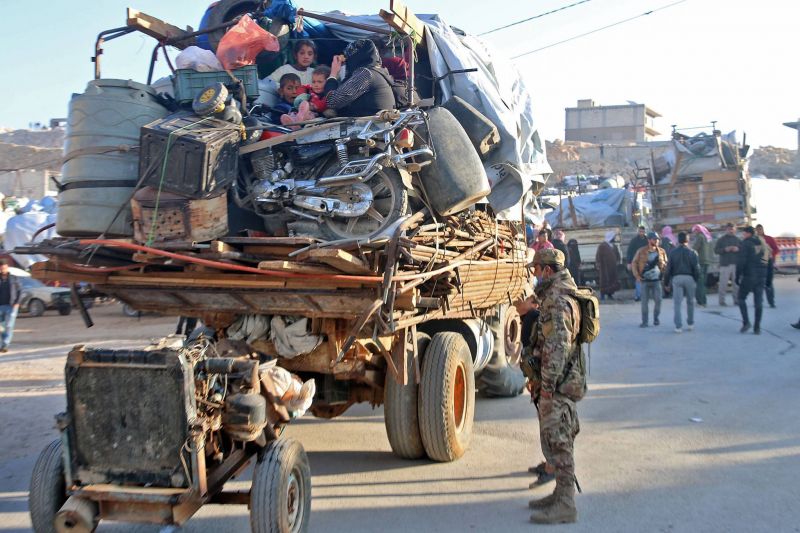
Syrian refugees in Arsal, in the Bekaa, on their way back to Syria, on Oct. 26, 2022. (Credit: AFP)
BEIRUT — Kfar Roummane municipality in South Lebanon announced a series of restrictions Friday, including a curfew, applied to "non-Lebanese" residing in the village, the state-run National News Agency reported.
The announcement did not specify which nationality or nationalities the restrictions applied to, though similar restrictions in other Lebanese municipalities have been targeted at Syrians.
These restrictions include "a ban on movement between 7 p.m. and 6 a.m., a ban on foreign newcomers settling in the village or on families who have left the area returning."
The municipality has also banned "foreigners under the age of 18 who live in the village from driving cars or motorbikes."
"Anyone who illegally uses water or electricity will be evicted," the municipality said, calling for "the repair of sewage systems, as well as access to running water in flats occupied by refugees within 15 days, under penalty of a fine. It also prohibited "several families living in the same flat."
The municipality warned that anyone who does not comply with these measures will be "immediately evicted."
This is not the first time that Lebanese localities have implemented discriminatory measures against foreigners in their municipalities, including Syrian refugees.
Last July, the municipality of Mansourieh, in the Metn area, imposed a mandatory curfew on Syrian nationals. The municipal police in Beit Mery, also in Metn, carried out daily patrols in the summer, prohibiting Syrian gatherings in the streets in the evening. The authorities turn a blind eye or encourage such practices, which have no basis in Lebanese law and are illegal under international law.
On Nov. 24, the murder of a Lebanese teenager by two suspects of Syrian origin in Aqtanit, southeast of Saida, heightened anger in the region against the many refugees there, who were eventually driven out of the village.
Lebanon hosts around 1.5 million refugees, the highest number per capita in the world, while some 839,000 Syrian refugees are currently registered with the United Nations High Commissioner for Refugees (UNHCR). The exact number of Syrians in Lebanon is not known, as the Lebanese government requested UNHCR to stop registering new refugees in 2015.